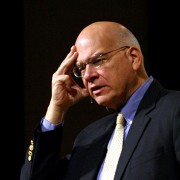Biblical Meditation and Spiritual Blessing
/2 Comments/in Bible, Discipleship, Leadership, Ministry, Pastoral Resources, Practice, Random Tangents, Revelation, Trends, Uncategorized/by kellencriswellBIBLICAL MEDITATION AND SPIRITUAL BLESSING
Psalm 1: 1-2 “(1) Blessed is the man who walks not in the counsel of the ungodly, nor stands in the path of sinners, nor sits in the seat of the scornful; (2) But his delight is in the law of the LORD, and in His law he meditates day and night.
Spurgeon Insight: “He delights to be in it (the Law) as his rule of life; he delights, moreover, to meditate in it, to read it by day and think upon it by night.”[1
Two Sources of Influence
This Psalm is about two different types of counsel by which a person can live, and the practical results a person can experience from following one or the other. On the one hand the Psalm warns against living life by the counsel of the ungodly, those who don’t live by God’s wisdom and have a right relationship with Him. On the other hand the Psalm graphically describes the blessed life a person will enjoy if they turn to God’s law for counsel which is found in God’s Word, the Bible.
The Subtle Key to Blessing
I have often read this Psalm and took encouragement from it to keep studying the Bible as my guide in life decisions. Reading it over today it stands out to me that being blessed through God’s Word involves a lot more than studying the Bible. The Psalmist doesn’t say that the person who merely reads or studies the Bible will be blessed. He says that it is the person who “delight(s)” and “meditates” on the Law of the LORD who will be blessed. Delighting in God’s Word speaks of taking pleasure in it. Meditating on God’s Word isn’t just reading it, but chewing on it mentally, and I believe, praying over what is found in God’s Word.
Delight = Spiritual Nourishment
So the big application for me is not to stop short with mere Bible reading and expect to be transformed by the Word. I must delight in God’s Word and meditate on God’s Word. Only then will I be the blessed and transformed person glorifying God that this Psalm describes. The ability to do either of these things will take the grace and enabling of the Holy Spirit. Pray with me…
Lord, we pray right now that you would increase delight for your word inside our spirits. Increase our capacity to enjoy it through meditation. Our spirit is willing, but our flesh is weak. By Your grace and Spirit accomplish these things in us so we can live the transformed and blessed life You desire to produce in, and through us.
[1] Spurgeon. Charles. The Crossway Classic Commentaries. Psalms. Page 2.
Note- The above post is taken from “Lift: a Devotional Journey through Selected Psalms” By Kellen Criswell
Understanding Your Context – Daniel Fusco
/4 Comments/in Apologetics, Bible, Call of God, Church Issues, Church Planting, Culture, Discipleship, Evangelism, Ministry, Pastoral Resources, Practice, Random Tangents, Revelation, Social Responsibility, Trends/by danielfuscoWhen I speak with church planters, I always want to find out about the area that they are ministering. I ask them about the community, its values, its style, the demographics, etc. I find that oftentimes men haven’t taken the time to do any cultural exegesis. At first, this took me aback. But then I remembered that when I planted the church in New Brunswick, I did barely any cultural exegesis. I was a young man with a Bible who knew that faith comes by hearing and hearing by the Word of God. I had seen the Lord change my life and I had a passion to see people experience that same change. So I set on out, without thinking much about where I was, the uniqueness of the area, etc. Even when we first began, although I was saying all the right things about my understanding of the community, the reality was that I didn’t really take the time to understand the average person in New Brunswick. I didn’t love the community enough to want to really know and understand them. The ministry suffered because of this. Not because I didn’t teach the Word, but because I did but not in a way that anyone could understand. It suffered because I exported the ministries that I had seen at the church that I was an Assistant Pastor at, rather than seeing my area for what it was and tailoring the ministry accordingly. So now, we’re going to look at ways of understanding our ministry context as well as some of the pitfalls that church planters face.
The Most Important Thing about Contextualization
The Gospel of Jesus Christ is unchangeable. It is fixed. It cannot be altered and still be honoring to God Himself. But how we communicate these truths need to be changeable. They will change as the times do and as the culture does. The reason that I say this is the most important thing about contextualization is that many people don’t want to contextualize the gospel because many people change the Gospel to reach a culture (this is called syncretism). This is wrong. But you can package the gospel in such a way as to keep people from actually being able to hear it. Imagine if you were interested in using a new computer. You go and talk to a ‘professional computer guy’ and he speaks to you in very technical, computer geek language. Within a few minutes, you are completely lost and your eyes glaze over and you decide that learning about the new computer is not for you. Is it that you weren’t really interested in learning or was it that the computer guy just shot soo far over your head that you just couldn’t get it? I’m sure a lot of our churches are like this. So in any discussion about contextualization needs to begin and end with the unchangeable gospel that God asks each of us to package specifically for our target audience, our community.
The Scriptures are Completely Contextualized
This was a mind-blowing realization to me. There are four Gospels. Each one has a different audience. Matthew, writing to Jewish people, quotes extensively from Scripture and is constantly looking at the fulfillment of prophecy in the life of Jesus. Mark’s Gospel has very little of this, as he was writing to a different audience. You’ll notice in Luke’s Gospel how he is always clarifying things to explain things that the average Roman wouldn’t understand about Jewish culture. Each of Paul’s epistles are contextualized to a specific area. The Galatians were struggling with the Judaizers, so Paul spoke to them about the necessity of faith apart from works. The church in Corinth was simultaneously spiritually gifted and carnal. So Paul shared to them the unsearchable riches of Christ within their context. Although all of this is God-breathed, it was inspirationally directed to a specific group of people. Not only were the words and concepts inspired, but also that those words and concepts were to be directed to a specific target audience! Jesus was incarnate into first century Judaism. He looked and dressed as they did. He understood how they were raised, as He was raised the same way. He spoke their language. If the Lord would have been incarnate say today in New York City, the Gospels would contain the same truth, but in drastically different packaging. One of the keys to understanding your context and ministering effectively within it is to ask the simple questions (with radically important answers), “If Jesus were to be incarnate today into (insert your location here), what would His ministry look like?” “If the Apostle Paul was doing his missionary work in (insert your location here), where and how would he do his ministry?” Then you should ask the question, “Why aren’t I doing these things?”
Demographic Research Is Not Unspiritual
I had always thought that it was unspiritual to look at demographics. As if using demographics somehow made your calling of God of a lesser effect. I had heard people speak ill of Rick Warren for surveying the area that he hoped to plant in to find out about what the people’s experiences with church and their perceptions of what would be the type of church they would attend. He found, among other things, that people wanted sermons that had real life application to it and they wanted a church that really valued their children. I believe that God wants these things as well for His church. Wikipedia defines demographics as ‘Demographic or demographic data refers to selected population characteristics as used in government, marketing or opinion research, or the demographic profiles used in such research. Commonly-used demographics include race, age, income, disabilities, mobility (in terms of travel time to work or number of vehicles available), educational attainment, home ownership, employment status, and even location. Distributions of values within a demographic variable, and across households, are both of interest, as well as trends over time.’ Demographics are simply a compendium of who lives in your area. It was completely illuminating to read the US Census Data for Mill Valley, California where I currently serve. The people here are 90% Caucasian. 60% of the people have a college degree and one in three people have an advanced degree. The average per family income is more than twice the national average. This simply teaches me that the people here are primarily Caucasian, wealthy, successful and very well educated. This has profound implications for ministry style and approach. Would it be wise to come into a primarily Caucasian area and harp on the need for the ministry to be multicultural? With the education of the area that I am in, I have to make sure to anticipate the intellectual arguments of very well educated people and pepper all messages with this. Demographics are a snapshot of the makeup of your community. You want to know who you are trying to reach and make sure that your approach takes into account the people you are trying to reach and not just your own personal preferences.
We Absolutely Need to Understand the Average Person in our Community
Now I hate to say this but you won’t understand the average person in your community reading Bible commentaries and listening to your favorite pastors. Don’t get me wrong, you need to study to show yourself approved and be edified. But this will not help you understand your missiological context. Are your neighbors reading Bible commentaries? It is doubtful (although we wish they would). Do your neighbors really care about what some group of Christians are doing in some place that they’ve never been that you don’t agree with? Again, it’s doubtful. But oftentimes, this is what pastors do.
I have found that in order to understand the people that you are called to minister to, there are certain things that you can do to aid yourself.
1) Purposefully vary your people context.
Make sure that you spend time with non-Christians and find out what is important to them. It is really easy for church planters and pastors to spend all of their time with folks from within their congregation. It is essential and a disciple to vary your people context. Find out where they get their information from, the books they like, the movies that seem important to them and what they laugh at and why. Talk to them about sports and politics, but not to argue with them, but to understand them.
2) Read their information sources.
Read your local newspaper if it is popular and widely read. Read magazines that are targeting a population that is similar to your own. Read the popular books in your area. You can go into the local large bookstore change and ask them for their list of the most popular books that the store has sold. It’s a good idea to buy a book or two and read it with a mind to both understand your target population and also have a point of contact to begin dialoguing with people about (like Paul’s ‘Unknown God’ reference in the Book of Acts). I have found that magazines are easier than books as they are shorter and not as involved/time consuming. Also, if your area is strongly of a certain political flavor, you want to really understand their worldview so listen to their pundits, even if it makes you a bit nuts. If you want to understand whom you are trying to reach, you’re going to have to make some sacrifices.
3) Find the Points of Commonality
As you speak to people and as you digest their information, find the areas that you can agree on with the culture at large. Most people are used to Evangelicals being completely adversarial in their approach. It turns them off, just as it would us, if we were in their shoes. In almost every culture, there are things that there is agreement on. It’s important to find those points and use them as a relational bridge.
4) Proximity Breeds Accountability
I always encourage church planters to live directly in the community that they are called to. You want to live in the same context as they do. People will consider you irrelevant if you are living in the suburbs and trying to plant a church in the middle of a city ghetto. Your contexts are different and they will see that. You want to shop where they shop, work out where they work it, have the same weather, etc. And by all means, if you move into an area, change your cell phone number to have the same area code as everyone else, there is nothing that says ‘outsider’ more than having a cell phone number from some unheard of area code. And on that note, get your license plates changed ASAP if you move across state lines.
5) Teach As If Your Community’s Seekers Are There
If all of your messages are directed at evangelical people and are concerned with evangelical sub cultural discussions, then the only people who will be interested in them are evangelicals. But in most of our communities, there are less and less evangelicals and more and more people who don’t go to church. If you ever hope to reach your community, you want to make sure that you are teaching to an audience (whether you are in actuality or not) who includes those who are not yet Christian. Don’t just invalidate the average concerns with mockery. Those are real people’s concerns. Teach the Scriptures and show the community God’s love from them by lovingly addressing their most common concerns and explain to them how that concern is either unfounded or way more important than they realize. When you teach, teach as the average person in your community is there, and Lord willing, one day they will be and there will be conversions in the church.
6) Make Sure that You Really Love Them
Love is always relevant. I often think of Jesus eating with the tax collectors and sinners. He was nothing like them, at all. But yet He loved them and spent copious amounts of time with them. Even though He was distinct from them, He was there with them and no doubt, they knew that He loved them. We need to make sure that we love the community that we are trying to reach. We need to beg God for His heart for the people. He loves them. Jesus Christ died on a cross so that those who would come to Him might have life and have it more abundantly. God give us your heart of love for our communities.
The Prophetic Pastor
/16 Comments/in Church Issues, Ministry, Pastoral Resources, Revelation/by timbrownThe prophet has a stern word, a severe word, a timely and tumultuous word which he speaks into spiritual confusion, moral compromise, and carnal indifference. The pastor faithfully, systematically, and regularly expounds the timeless truths of the Bible week in and week out to a congregation of wheat and tares. Are the roles of prophet and pastor mutually exclusive? The OT says, “No.”
In the OT, the teaching office was the domain of the priests. They were not only to officiate at the altar, they were also to teach the law of Moses and make its ordinances, statutes, commandments, warnings, penalties, and blessings known. Consider the following-
God speaking to Aaron, of his sons –
LEV 10:11 “… teach the sons of Israel all the statutes which the LORD has spoken to them through Moses.”
Speaking of the priests –
DT 3:10 “They shall teach Your ordinances to Jacob, and Your law to Israel. They shall put incense before You, and whole burnt offerings on Your altar.”
Speaking to the priests –
MAL 2:7 “For the lips of a priest should preserve knowledge, and men should seek instruction from his mouth; for he is the messenger of the LORD of hosts.”
The priest was to be both teacher and prophet – instructor and warner. The priest could even receive supernatural direction that was not part of the law of Moses. The Urim and the Thummim gave the priest access to revelation not included in the Torah. But when the priest was faithless, he corrupted both his teaching office and prophetic role.
When the priests became corrupt and were no longer faithful to their calling and twisted the law of Moses, God would raise up prophets to do the work that the priests were not doing. This is why, for the most part, there is always tension and hostility between priest and prophet. The priest saw the prophet as competition as the prophet took upon himself the teaching office of the priest (but not his sacrificial role). The prophet had one basic message: ‘return to the law of Moses or else.’ The forthtelling message of the prophet was ‘return to Moses.’ The foretelling message of the prophet was ‘or else.’ They fulfilled the teaching and warning ministry of the priest.
For the most part, whenever you see a prophet in Israel, you can assume one thing – something is wrong. You can see this in the ministry of Samuel, who was judge/priest/prophet.
So Samuel did what the LORD said, and came to Bethlehem. And the elders of the city came trembling to meet him and said, “Do you come in peace?”1 Sam. 16:4
The elders of Bethlehem saw Samuel coming and thought, “Uh-oh.” When the priests of Israel became morally corrupt, spiritually collapsed, and doctrinally compromised, in come the prophets. The prophets were God’s mechanics – they fixed things.
Here’s the thesis I would like to explore with you: the NT pastor combines within his office the roles of both OT priest and prophet. Obviously, the call to the pastorate is a call to the teaching ministry of the church. Here, I would also like to suggest that, in addition to the priestly teaching role, there is a prophetic dimension of the pastor’s office. (Even though there is a separate prophetic office in the NT, this doesn’t obviate the need for the prophetic dimension of the pastorate. My sense is that the NT prophet doesn’t minister w/ the same regularity as does the pastor. The NT prophet, as his OT counterpart, ministered occasionally – not w/ the rhythmic regularity of the pastor.)
Though there are significant differences in how the prophet and pastor prepare for ministry, there is sibling DNA in how the two go about ministry. Contrasts between and comparisons with the prophet and the pastor are worth exploring.
The pastor has time constraints that the prophet didn’t/doesn’t. The pastor works under the time constraint of Sunday and midweek while it seems the prophet does not have the same regularity of demand. The pastor speaks a scheduled word while the prophet speaks an occasional word as he waits upon the initiative of God. Yes, the pastor is to wait on God also, but consider the following – Jeremiah, in C42 of his prophecy, waited ten days for the Word of the Lord to come to Him. Elijah stood in the council chamber of the Lord, whereas Elisha received the Word of the Lord when the minstrel played. Of course, as pastors, we can stand in the council chamber of the Lord and be stirred in our spirits by anointed music, but we can hardly wait ten days for the Lord to speak!
The pastor studies his Bible; the prophet waits on God. There was no text in front of the prophet except that of the Torah. Yet his calling wasn’t to systematically expound Torah; he waits for an immediate, unmediated Word. He has no commentaries in front of him and does not concern himself with word studies. Yes, he is part of a historical tradition and community, but this supplies him little grist for the mill. His task isn’t to take the words of others and gain richer insight, follow paths of implication, or give contemporary application.
Even the NT prophet, as I understand this office, does not ‘study’ as the pastor studies. He listens for the Lord as he discerns the times and discerns the people. He may minister with regularity, but not in the same place. Again, my sense is that the ministry of the NT prophet is extra-local. He can have one message that he then brings in 20 places. The pastor has a local ministry, he is in one place, and therefore needs to bring forth many messages.
The Word we pastors study is a mediated Word – it has already come through someone else. Yes, it is the Word of God as much as it was for the prophets, but it is not an immediate Word. The prophet is given bread; the pastor is given grain to make bread. The prophet’s bread is the pastor’s grain. The prophet is given a fully cooked meal; the pastor is given all the ingredients to serve-up a healthy dinner. The pastor expounds the timeless Word; the prophet proclaims a timely word. The pastor develops a text and brings an exposition of the information found in the text whereas the prophet seeks the burden of the Lord.
OK – so what?
The Prophetic Pastor
The prophetic pastor will develop the Biblical text and seek the burden of the heart of God. The prophetic pastor will labor to bring forth the timeless truth of the Bible and proclaim the timely word of the Lord. The prophetic pastor will exegete the Bible and exegete the people and the times in which he lives. The prophetic pastor will bring forth a stern word, a severe word, a timely and tumultuous word which he speaks into spiritual confusion, moral compromise, and carnal indifference. The prophetic pastor faithfully, systematically, and regularly expounds the timeless truths of the Bible week in and week out to a congregation of wheat and tares.
Many pastors avoid bringing forth a stern word for fear of being condemning. Many pastors avoid bringing forth a severe word for fear of hitting a note of harshness that could be interpreted as undermining grace. Discipline for sin, the destructive consequences of irresponsible decisions, the anger of God at the sin of individuals and the sin of the church, etc. are not common or popular themes in today’s pulpits. Because the prophetic dimension of the pastorate is at low ebb, many pastors, in the systematic and regular teaching of the Bible, rise no higher than giving theological lectures. The click and paste method of sermon preparation has hobbled the pulpit and turned it into a lectern. The sermon has lost its prophetic edge and has become an information dump. Cultural/linguistic/historic/theological background fills the sermon, leaving no ground for the voice of the living God. Biblical information is a means to an end – the revelation of God. The sermon, as the exposition of Biblical information, is meant to translate into the spiritual revelation of God in the heart of the hearer. The prophetic pastor will seek the burden of the Lord as he labors in his study of the cultural/linguistic/historic/theological background of the text for that week. I want the people not only to know what the Bible says, I want them to encounter the living God!
(I am not making the neo-orthodox claim that Biblical information becomes spiritual revelation in an existential moment. I am not saying that the Bible is not revelation, but contains revelation. I am not saying that Biblical information is not revelation in and of itself. I am not talking about the Bible – I am talking about the pulpit and the man who stands in it. I am talking about sermons and what they are meant to accomplish. The Bible is always revelatory – some sermons aren’t.)
Let me hasten to add that I have driven home many Sundays stinging in my spirit because I had failed to deliver the severe word, the stern word, because I thought it wasn’t the loving pastoral thing to do. I have also been guilty of using the pulpit as an information dump. I am so grateful that the Holy Spirit continues to use my poor attempts at preaching to reveal Himself to the people. I am amazed.
OK – that’s enough. This article was painted in broad brush strokes. If I painted outside the lines you are comfortable with, please let me know how you understand the roles, callings, ministries, and offices touched upon in this article. What is the role of the NT prophet? Do you know of any? What does their ministry look like? Has too much information made the sermon anemic?
Saturday Reflection – Dr. Tim Keller speaking at Google on “The Reason for God”
/1 Comment/in Apologetics, Bible, Call of God, Church Issues, Church Planting, Culture, Discipleship, Evangelism, Ministry, Pastoral Resources, Practice, Revelation, Social Responsibility, Trends/by danielfuscoGuest Contributor – David Guzik “We gain far more in Christ than we lost in Adam”
/0 Comments/in Bible, Call of God, Church Issues, Discipleship, Evangelism, Ministry, Pastoral Resources, Random Tangents, Revelation, Social Responsibility/by danielfuscoThis post is a response to a question that I posed to David Guzik. He graciously allowed me to post it as it was a great response.
I sent David a question based on something I saw tweeted that he had said.
“We gain far more in Christ than we lost in Adam.”
I asked David, “Is this true? Can you riff on this a bit for me?”
Here is David’s response-
Most of us think that the ideal world is the world of innocence, where sin or even have never been experienced. But God seems to place a greater value on the world of redemption.
Adam was certainly innocent, in the sense of not knowing good and evil (Genesis 3:22). But he was not righteous, in the sense of having fulfilled all of God’s law. Jesus came as the second Adam (Romans 5:12-21), and perfectly fulfilled the will and law of God with His obedient life. This positive righteousness of Jesus is credited to the believer by faith (Romans 3:21-22, Philippians 3:9). This is something greater in Jesus than Adam never had.
We also don’t have any evidence that Adam was regarded as an adopted son of God, but the believer is in Jesus (Ephesians 1:5, Galatians 4:5).
We are named kings and priests before God (Revelation 1:6, 5:10) – Adam never was.
We are part of a glorious community that Adam never knew, a community that will be consummated in the New Jerusalem (Revelation 21:1-3). Man has never known a community unmarred by sin. Adam and Eve only knew a limited community, and community in a larger context only came long after the Fall. Here, in the New Jerusalem, we have something totally unique: a sinless, pure, community of righteousness, a holy city.
In Ephesians 1:9-12, Paul wrote of the mystery of His will that has been made known to us. What is it? That in the dispensation of the fullness of the times He might gather together in one all things in Christ. A critical aspect of God’s plan of the ages is to “sum up” or resolve everything in Jesus. In a sense, we could say that God glorifies Himself by allowing a problem and showing His wisdom in not only solving the problem, but in making the end result greater that the prior condition.
I see a wonderful consummation of all this in Revelation 21:5: Then He who sat on the throne said, “Behold, I make all things new.” And He said to me, “Write, for these words are true and faithful.”
This is an authoritative announcement, coming from the throne of God itself: He who sat on the throne said. In this announcement, He says: “Behold, I make all things new.” This statement is in the present tense, “I am making everything new.” Revelation 21:5 marks the consummation of God’s work of renewal and redemption, having begun here and now in our present time.
The words “All things new” connect with the thinking behind God’s eternal plan – to allow sin and its destruction in order to do a greater work of making all things new. At this point in His plan of the ages, the plan is complete. All things are new.
Our instinct is to romantically consider innocence as man’s perfect state, and wish Adam would have never done what he did. But we fail to realize that redeemed man is greater than innocent man; that we gain more in Jesus than we ever lost in Adam. God’s perfect state is one of redemption, not innocence.
A few days later, David added this quotation to an email
Today I was reading some Spurgeon, and methinks I have a great quote from him about this very topic:
“You have been a gainer by Adam’s fall. You might almost say, as one of the fathers did, O beata culpa, ‘O happy fault,’ which put me into the position to be so richly endowed as now I am! Had you stood in Adam, you had never been able to call Jesus “Brother,” for there had been no need for him to become incarnate; you had never been washed in the precious blood, for then it had no need to be shed. Jesus has restored that to you which he took not away. He has not merely lifted you from the dunghill to set you among men, but to set you among princes, even the princes of his people. Think of the bright roll of promises, of the rich treasure of covenant provision, of all that you have already had and all that Christ has guaranteed to you of honor, and glory, and immortality, and will you not in the midst of the congregation praise the Lord?” (Jesus, the Example of Holy Praise)
Wow. I love that: You have been a gainer by Adam’s fall …. O beata culpa …. Jesus has restored that to you which he took not away.
No wonder that God had to tell John, “Write, for these words are true and faithful.” John was probably so astounded by these words that he forgot to write – and must be told to do so.
That’s how it runs through my mind. To me, it is just plain glorious.
Saturday Reflection #2 – Michael Frost – The Purpose of the Church
/4 Comments/in Bible, Call of God, Church Issues, Culture, Discipleship, Evangelism, Ministry, Pastoral Resources, Practice, Random Tangents, Revelation, Social Responsibility, Trends/by danielfusco
Michael Frost can be controversial. What do you think? Is he correct?
Saturday Reflection – Biblical Shalom
/0 Comments/in Bible, Church Issues, Culture, Discipleship, Evangelism, Ministry, Pastoral Resources, Practice, Revelation, Social Responsibility, Trends/by danielfusco“We call it peace, but it means far more than mere peace of mind or a cease-fire between enemies. In the Bible, shalom means universal flourishing, wholeness, and delight, the webbing together of God, humans, and all creation in justice, fulfillment, and delight. It’s a rich state of affairs where natural needs are satisfied and natural giftings are fruitfully employed all under the arch of God and in His love. Shalom, in other words, is the way things ought to be.” (Cornelius Plantinga, Not the Way It’s Supposed to Be: A Breviary of Sin, [Eerdmans, 1995] p. 10)








